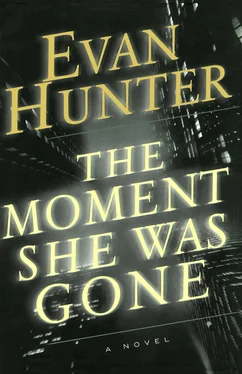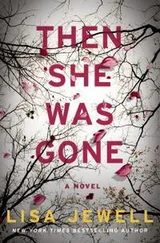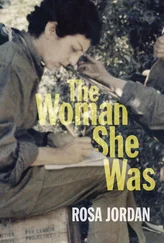Evan Hunter
The Moment She Was Gone
This is for my beloved wife, Dragica Dimitrijević-Hunter, who nursed it along patiently and devotedly — and finally blessed it. My eternal thanks and enduring love.
My mother phones me the moment Annie is gone.
It is two o’clock in the morning.
I know at once who is calling and why. Nobody but my mother ever calls me at two in the morning, and then only to tell me that my sister is gone again.
The family gathers in the early morning hours. I get there last because I live in Chelsea, all the way downtown, and my mother’s apartment is on West End Avenue and Eighty-first Street. They are already talking about what to do when I come in. My sister-in-law Augusta offers me a cup of coffee, and then we go in to join the others in the living room.
My mother is sixty-three years old, but she still skis and she still travels and there are many people who find her attractive. When I look at her, I see a thin, hawkish-faced woman with piercing green eyes and short brown hair she tints auburn. She is wearing tonight a brocaded silk robe she bought in Tokyo three summers ago, and red velvet slippers with gold trim, from Bergdorf’s. My mother is very proud of her tiny feet. She tells everyone she knows, over and over again, that she has truly tiny feet and then immediately informs them that she once played Alice in a touring company of Alice in Wonderland, as if her tiny feet had been responsible for her getting the role.
My mother was once a stage actress, you see. Helene Hammond was her stage name, does it ring a bell? I wouldn’t guess so. She hasn’t performed in anything since she was part of the young cast in West Side Story — the original Broadway production, that is — back in 1957. That was forty-five years ago. But she still thinks of herself as a musical comedy star, which she never really was.
My mother’s maiden name was Helene Lederer. That’s because she’s Jewish. I feel certain my grandmother intended her name to be pronounced “Ell- enn ,” in the French manner, an affectation common among well-to-do Jews of her generation. Instead, my mother pronounces it to rhyme with Arlene. I personally feel the French pronunciation would better suit her personality, but it’s her name and her business. According to my older brother, our mother’s Jewishness makes all of her kids Jewish as well, even though my father was an Irishman named Terrence Gulliver.
I say “was” because I never really got to know the man. He abandoned my mother and the family when I was only five years old. Well, divorced her. My mother keeps saying he abandoned her, even though he paid alimony and child support till Annie and I turned eighteen. Like me, Annie was also five when Daddy left, so you can’t blame her problems on his defection. Annie is my twin, you see. Andrew and Anne, as our parents named us. Andy and Annie, as we became, no relation to the Raggedys.
My brother is quite successful. His name is Aaron, which was my mother’s father’s name. My grandfather turned all of Mama’s pictures to the wall the moment he learned she was going to marry a starving artist named Terrence Gulliver. By the time my father jumped ship, he was no longer a starving artist, and my hypocritical Hungarian grandfather was calling him “Terry, m’lad,” according to bitter stories my mother still tells, but it turned out the old man was right after all, wasn’t he? Not wanting her to marry a goy?
My grandfather is now dead, but his namesake — my brother Aaron — is the CEO of a cosmetics firm with which you’re familiar if you’re any woman who tints her hair, go ask my mother. Aaron agrees he’s Jewish because our mother is Jewish. That’s okay by me. His daughters are not Jewish, however. That’s because Aaron’s wife is of German descent. In fact, his daughters aren’t even his true daughters, in that...
Well, that’s another story.
You see, after Aaron brought his intended bride home to meet the family, my mother instantly hired a private detective from Newark to look into the “young lady’s background.”
It appeared that my brother was about to marry the town whore.
The detective reported that Augusta was knocked up for the first time in the back seat of a Chevy convertible parked behind the football stadium at Ridley High School in Ridley Hills, New Jersey. The father of her first daughter was a quarterback for the Ridley Royals, as they still call themselves, a rather pretentious name for a team that has finished at the bottom of its league from time immemorial.
Michael Henderson, for such was his name, never married Augusta — or Gussie as she was calling herself back then. Instead, he ran off to join a commune in San Francisco. Gussie somehow persuaded her staid Lutheran parents to let her go ahead with the birth rather than have the baby aborted. Augusta is now forty-five years old. Her first daughter, Lauren, is twenty-nine and married. Mr. Henderson must have spread little Gussie’s legs (presumably not for the first time) when she was but a mere fifteen.
When she was sixteen, and three months after Lauren was born, Augusta took on a brawny lad named Colin O’Rourke, this time on the football field itself, the better to enjoy the splendor in the grass, no doubt. Lo and behold, and having learned nothing about birth control on her earlier go-round, Augusta discovered that she was once again pregnant. Young Colin, left tackle but devout Catholic, also chose not to marry her, preferring instead to enlist in the United States Army. He was whisked almost at once to a post in peacetime Germany, where he was killed in an automobile accident on the Autobahn. Augusta’s first child was only a year old when the second one was born. In honor of her slain Irish swain, she named this second daughter Kelly.
My brother Aaron was twenty-two when he met Augusta. He was a senior at Princeton, which is not far from Ridley Hills, if you have a map. She was twenty-seven, and working at the time as a counter girl at the local McDonald’s. By then, gun-shy Gussie had developed a reputation for swallowing organs larger than the one at Radio City Music Hall, a talent my brother apparently found engaging as well as engorging. Gussie’s daughters were eleven and ten respectively, and still bore her maiden surname, Manners, the Anglicized Mannheim from which town her forbears had migrated. Manners, no less. A singular contradiction when one considers that etiquette is the least of Augusta’s attributes. By the way, she started calling herself Augusta again the moment my stupid-ass brother slipped a wedding band on her dainty trembling hand.
He has since adopted both daughters. They are now, respectively and respectfully, Lauren Gulliver Hastings and Kelly Gulliver. When my mother dies, Augusta and Aaron will undoubtedly inherit a share of her estate which — when they die — will go to the offspring of two-elevenths of the Ridley Royals’ offensive team.
Augusta had no qualms about seeking an abortion six years ago, however, when at the age of thirty-nine she surprisingly missed two periods in a row, and quick as a wink deduced, Gee, I must be preggers again, wow. This was a woman, mind you, who — when I suggested that she vote for a freedom-of-choice candidate because one day either one of her two lovely daughters might find herself in trouble and in desperate need of an abortion — said, “Oh, that!” and airily waved aside the entire anti-abortion issue. It wasn’t a matter of “Oh, that!” some tour years later, however, when a doctor confirmed that she was indeed pregnant, and Augusta decided she was too old to be bearing another child, they’re either too young or too old, right? Quicker than you could say “Right to Life,” Augusta found a respectable doctor who aborted the embryos.
Читать дальше












